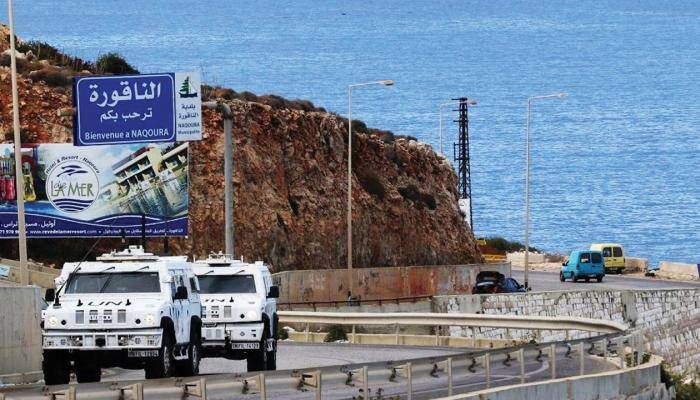The "Al-Jumhuriya" newspaper indicated that amid the echo of threats, the American mediator in the maritime border demarcation file between Lebanon and Israel, Amos Hochstein, has arrived. In parallel with this heated file, the region holds its breath, awaiting the outcome of the American mediator's actions. Whether the situation will escalate further or if the mediator has something to lead it in the opposite direction, cooling the fire before it ignites, is uncertain. All observers, both domestically and internationally, agree that the escalating maritime developments, particularly with Israel bringing a Greek drilling ship to the disputed waters, have created a new and significantly dangerous scene threatening the entire region.
Serious concerns have been expressed by Western and international diplomats regarding the potential for the situation to spiral into a military confrontation, the ramifications of which are difficult to predict and could extend beyond the immediate area. These fears were exacerbated by the threats preceding and accompanying the American mediator's visit to Beirut, which were aligned with reliable information provided to "Al-Jumhuriya" regarding Western diplomatic messages to senior Lebanese officials. These messages unmistakably reflect that the mutual threats between Israel and Hezbollah are taken seriously and emphasize that Lebanon must approach the developments in the demarcation file with patience and wisdom.
Western diplomatic sources told "Al-Jumhuriya" that any tension, regardless of its magnitude, would only destabilize the region and threaten its security, thus serving no one's interests. They believe that Hochstein's visit to the region under such circumstances constitutes a reassuring factor and a brake on any potential tension. Americans are keen to achieve positive outcomes in the stalled file between Lebanon and Israel, and they still believe that reaching an agreement is possible. Hochstein's presence reflects this approach and necessitates the cooperation of all parties in response to the American effort to reach an agreement beneficial to both Lebanese and Israeli sides, especially since such an agreement would benefit both parties.
In response to a question about what confirms Washington's desire to avoid escalating tensions in the region into confrontation, the diplomatic sources remarked that Russia's war in Ukraine has caused evident global disruption and dramatic realities. They stated, "Let's consider how things would be if a new confrontation erupted in the region; this could place the area on the brink of a regional war with broader global implications and destructive effects throughout the region."
In this context, while the Israeli threats of launching a destructive war on Lebanon have caused concern among some Lebanese, official Lebanese sources categorized them as attempts to intimidate Lebanon and influence its stance, thereby overshadowing Hochstein's visit. Furthermore, insiders familiar with Hezbollah's mindset view these threats, particularly those articulated by the Israeli Chief of Staff, as primarily directed at the Israeli public as a reassurance, given the significant confusion reflected in Israeli media, along with the impact of recent threats voiced by Hezbollah's Secretary-General, Hassan Nasrallah, within Israeli society.
This perspective aligns with insights from those involved in the demarcation file, who indicate that some Western reports exclude the possibility of confrontation, asserting that "Israel's need for gas at sea is nearly equal to or exceeds Lebanon's need for it." It is suggested that both parties prefer to avoid escalating tensions in the gas region. Additionally, the global demand for Russian oil and gas further stresses the need for gas, making the gas in Lebanese and Israeli waters a global necessity that will continue to receive international protection, which would prevent any outbreak of war or confrontation over it.
A strong stance: In this context, "Al-Jumhuriya" asked a senior official whether Hochstein's visit would open the horizon for solutions regarding maritime borders. The official responded that everything hinges on two factors: first, the integrity and neutrality of the American mediator and the sincerity of the approach towards an agreement on demarcation that confirms Lebanon's full rights to its borders; second, the strength of Lebanon's position. The final judgment regarding one unified and clear position that explicitly determines the definitive Lebanese border and the areas of negotiation must be clear.
The senior official noted that "the fundamental flaw afflicting Lebanon's position is the prevailing confusion and the ambiguity between lines 23 and 29; these do not serve Lebanon's position at all but reinforce the Israeli logic, allowing it to sneak in and appropriate Lebanon's rights." Hence, a definitive resolution of the border point is crucial because, at the core of the issue, secondary matters become irrelevant. This necessitates moving beyond the politically distracting disputes and engaging with a file that is related to the future and fate of the nation and its people, with responsibility and scientifically, affirming Lebanon's rightful claim to its maritime borders and its resources. Continuing in this confusion will lead to losing our rights while we watch them slip away.




